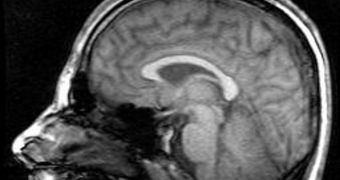Scientists studying the origins of attention deficit hyperactivity disorder (ADHD) say that slight delays in the normal development of the brain may be responsible for the condition. Previously, experts thought that a total alternation of the usual development patterns was to blame.
What the new investigation suggests is that even slight delays in the regular “timeline” of neural development can trigger a host of changes that can lead to the development of ADHD. The new research was supported by the US National Institute of Health (NIH).
The work was based on a previous study, which demonstrated that children suffering from ADHD display a thickening of the cerebral cortex. Experts decided to follow this connection further, in order to figure out why this happens.
Both the thickness and area of the cortex expand during normal brain development, the team adds. These two processes are extremely important, since the cortex is responsible for integrating attention, cognition, language, attention and sensory processing, among other critical functions.
What the team did in the new study was test to see if the cortical surface area in ADHD children is also abnormally developed. Scientists therefore recruited 234 ADHD children, and 231 healthy subjects.
Between the ages of 10 and 17, the kids had their brains scanned four times, at various intervals. The purpose of the scans was to figure out how their cortices developed. Scientists were naturally interested in the differences between the two groups.
Development status was measured at over 80,000 points across the brain, for each study participant. The team noticed that ADHD children exhibited a delay in developing the cortical surface of their frontal brain region, PsychCentral reports.
Healthy subjects achieved 50 percent peak area in the right prefrontal cortex at the age of 12.7, the research group explains. By comparison, ADHD test subjects did so at an average age of 14.6.
“As other components of cortical development are also delayed, this suggests there is a global delay in ADHD in brain regions important for the control of action and attention,” says first study author, Dr. Philip Shaw, an ADHD-focused clinician at the National Institute of Mental Health.
“These data highlight the importance of longitudinal approaches to brain structure, Seeing a lag in brain development, we now need to try to understand the causes of this developmental delay in ADHD,” comments Dr. John Krystal, the editor of Biological Psychiatry (the journal that published this study).

 14 DAY TRIAL //
14 DAY TRIAL //